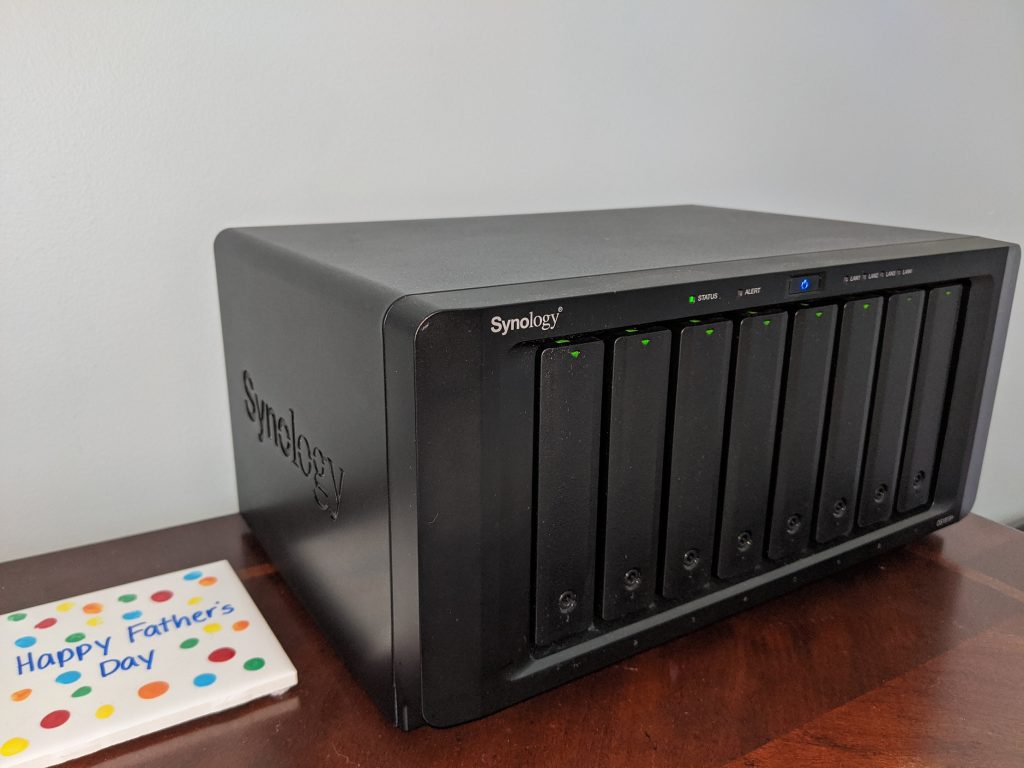I like working & playing with storage…all kinds of storage: Local storage (old RAID with spindle HDDs, solid state drives), networked storage, cloud storage, storage ALL THE THINGS. My lab (and home environment) has changed throughout the years and I’ve used several different products. To order from length of time used would look something like this:
- FreeNAS
- Plain Windows Server (and Storage Spaces) since…who’s better at SMB than, well, Windows?
- StarWind Virtual SAN
- VMware vSAN
There are plenty of posts here of my experiences with all of them over the years and for me, each has its own advantages and disadvantages. Lately, though, I’ve been trying to simplify the environment that I manage…so while I’m sure I could set everything up manually, with scripts and what not, that does not lend itself to always working. So I decided to try to find a single solution that just works without my needing to dig into the weeds or write a hundred scripts just to get snapshot synchronization working.
I have a few general requirements for my storage:
- SMB shares for documents, photos, music and miscellaneous files
- Another random file protocol or two (FTP for MFC scan-to ability)
- Fast iSCSI (or NFS) storage for lab VMs
- A way to locally backup PCs and VMs
- Way to replicate some of the data elsewhere
Enter Synology
I’ve known about Synology products for a LONG time. I went back and forth with Jason over at https://itrandomness.com/ about performance, scalability\upgradability, and overall experience. At the time, I was touting all of the FreeNAS capabilities and performance after having heavily tuning it. I ran into one or two bugs, but was able to get through them and for the most part, FreeNAS provided great performance and most of the protocols and capabilities I needed.
But the hardware was too much…4U boxes do NOT tend to provide much in the way of wife acceptance factor (WAF). My 1 and 2 TB drives were filling up. I needed something simpler that just worked. It was time for an upgrade.
And then to decide: do I custom build something again? No. We’re going for simplicity. I had done loads of research in the past to compare vendors, and came up with two: QNAP and Synology. I didn’t end up purchasing a QNAP, so I can’t give them a very fair review. I determined from my research that the Synology software suite as a solution seemed a good bit better – meaning, they won lots of points in the it just works category. So I found a suitable desktop model, and here we are.

This, is the DS1819+. It’s quiet, it runs cool, and there are capabilities that I had not used in the past, that I am now finding uses for.
Checking the Boxes
I wanted to get my hands on smaller hardware prior to making the final decision, so I purchased a smaller 2-bay model first to kick the tires. Obviously I was impressed, and this smaller box is now a remote backup and replication target for another environment that I “manage”. Synology DiskStation Manager (DSM) is the operating system that runs on the appliance, and it’s VERY intuitive and easy to use. Out of the box, DSM supports all of the storage protocols anyone should need.
Managing the Synology is done mostly via a web interface that is built so well that it’s very difficult to tell it’s a web interface. There is also optional (advanced) access via SSH, but it can be enabled\disabled as needed.
If you need another capability like simple file backup (Hyper Backup), System Backup (Active Backup for Business), Hypervisor capability (Virtual Machine Manager), or even a simple IP Camera DVR (Surveillance Station) – these extra apps are all available in the package center. DSM offers support for the BTRFS file system, snapshots and replication. There are also a good number of mobile apps available for management, file share access, and productivity. You can make your appliance available publicly, but there were some malicious attacks in the past, so I won’t be (nor do I need to) doing that.
It’s been almost a year now, and I have ZERO complaints. Next post I’ll cover some of my use cases and app configurations.
